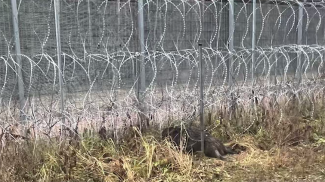
Photo courtesy of RIA Novosti
MINSK, 8 July (BelTA) – Belarus is ready to join BRICS in creating coordinated mechanisms to address environmental and biological threats, Belarus’ Minister of Foreign Affairs Maksim Ryzhenkov said at the 17th BRICS Summit Session on “Environment, COP 30 and Global Health” in Rio de Janeiro, BelTA has learned.
“Belarus is ready to share its experience and the latest technologies on all strategic issues of the climate agenda and public health of global importance. We are ready to join BRICS in creating coordinated mechanisms to address all types of environmental and biological threats, and thereby minimize their negative impact on the health of the planet’s population,” the foreign minister said.
Maksim Ryzhenkov went on saying that Belarus identifies mitigating and adapting to climate change, alongside maintaining a favorable environment, as a key national security priority.
Sustainable Development Goal 13 “Climate Action” has already been included in Belarus’ strategic and program documents.
“By now, Belarus has implemented two national programs focused on mitigation measures, and adopted strategies for adapting agriculture and forestry, as well as managing water resources. The Belarusian nuclear power plant has been fully commissioned, reducing greenhouse gas emissions by more than 8 million tonnes annually. In order to maintain momentum in reducing greenhouse gas emissions, the country has embarked on drafting an ambitious plan - the Long-Term Strategy for Low Greenhouse Gas Emissions up to 2050,” said Maksim Ryzhenkov.
He noted that the use of renewable energy sources has significantly increased in Belarus. Electric transport is experiencing rapid development. The associated infrastructure is expanding. The share of passenger urban electric transport in the overall transportation landscape is increasing.
“Belarus is one of the leaders in wetland restoration, contributing significantly to ecosystem services in Europe.
In the context of global challenges such as pandemics and environmental threats, the environment and human health are inextricably linked. Therefore, Belarus integrates public health and environmental protection efforts to effectively address threats and achieve sustainable development,” the diplomat emphasized.
The minister noted that Belarus’ healthcare operates as an integrated system, demonstrates sufficient experience in managing communicable and non- communicable diseases, including a strong capacity for epidemiological surveillance and outbreak response.
The Centralized Health Information System is being successfully introduced in the country. It is a large-scale project aimed at digitalization and integration of information resources in the field of healthcare.













